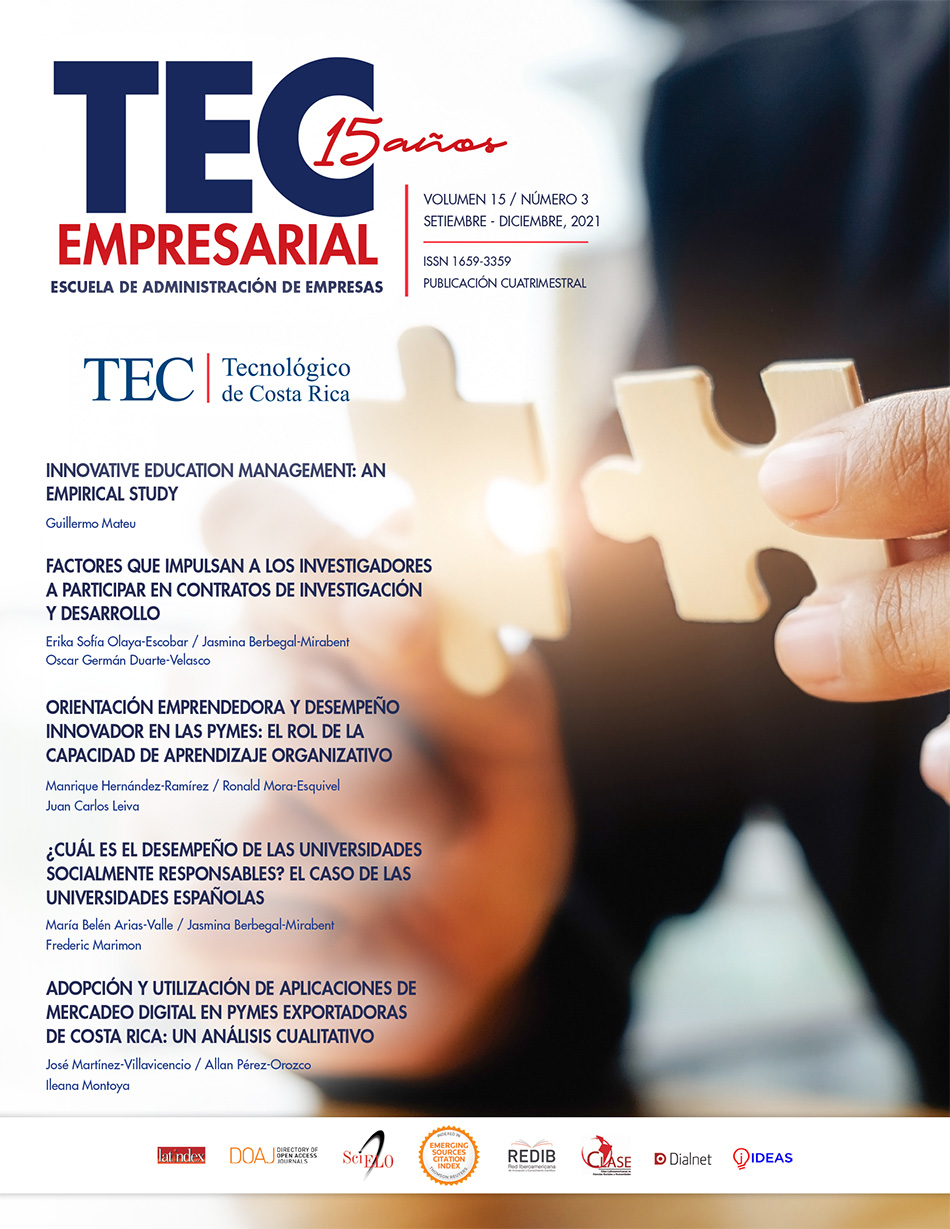Innovación en la gestión educativa: un estudio empírico
Contenido principal del artículo
Resumen
Este artículo analiza el impacto de la metodología experimental, como herramienta de innovación, en la adquisición de conocimientos teóricos por parte de estudiantes de gestión empresarial. El estudio incorpora un diseño sencillo, dividiendo la muestra de estudio en dos grupos aleatorios. Un grupo participa en un experimento en el aula diseñado para ilustrar el concepto de la curva de Phillips, mientras que el otro participa en una lección tradicional. El experimento se implementa bajo un protocolo experimental estricto, y se evalúa comparando el rendimiento académico entre los dos tipos de grupos, garantizando el anonimato total y la privacidad de las decisiones. Este diseño analiza el impacto del experimento en el aula entre los dos grupos. Los estudiantes que participan en el experimento de la curva de Phillips muestran un rendimiento académico superior comparados con aquellos estudiantes que siguen el método tradicional. Considerando las mejoras en el rendimiento académico alcanzadas bajo la condición experimental, los resultados están altamente correlacionados con la gestión innovadora de la educación. Los profesores y gestores públicos deben considerar esta herramienta pedagógica como una herramienta obligatoria a la hora de educar en gestión empresarial. Los resultados del estudio pueden aplicarse de manera sencilla dentro de las organizaciones. Este artículo presenta un diseño claro y un conjunto sólido de resultados, mostrando cómo las formas de proceder en la educación gerencial afectan el rendimiento de manera diferente.
Detalles del artículo
La versión digital de la revista se encuentra registrada bajo la licencia Creative Commons BY-NC-ND 4.0. Por lo tanto, esta obra se puede reproducir, distribuir y comunicar públicamente sin propósitos comerciales, siempre que: 1. Se reconozca el nombre de los autores y la revista Tec Empresarial, y 2. No remezcle, transforme o haga una creación a partir del original.
Los autores conservan los derechos de autor y ceden a la revista el derecho de la primera publicación y de que pueda editarlo, reproducirlo, distribuirlo, exhibirlo y comunicarlo en el país y en el extranjero mediante medios impresos y electrónicos. Por otra parte, el autor declara asumir el compromiso sobre cualquier litigio o reclamación relacionada con derechos de propiedad intelectual, exonerando de responsabilidad a la Escuela de Administración de Empresas del Tecnológico de Costa Rica.


